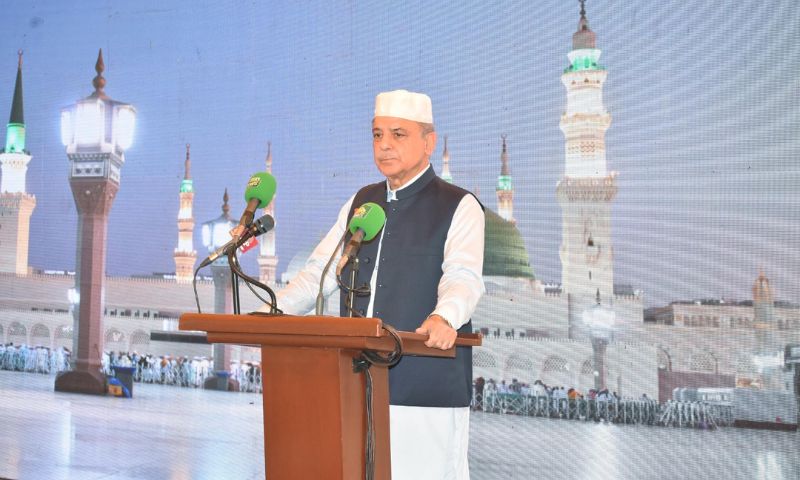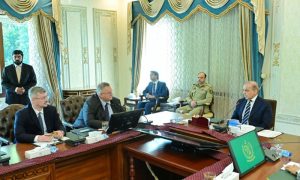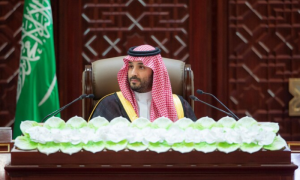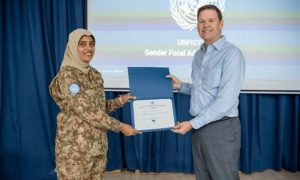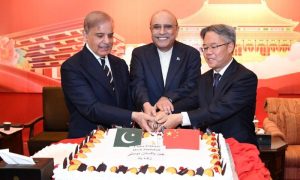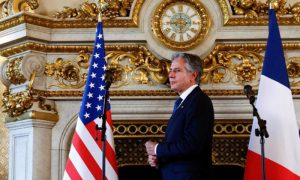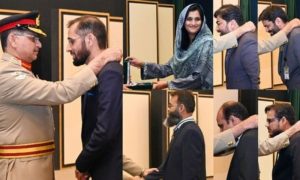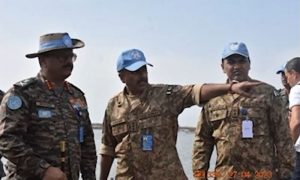LAHORE: Pakistan’s Prime Minister Shehbaz Sharif underscored the significance of adhering to the teachings of the Holy Prophet Muhammad (Peace Be Upon Him) as a solution to Pakistan’s challenges.
He was addressing the Eid Milad-ul-Nabi Sallalaho Aleyhe Wa Allehi Wassalam conference here in Lahore on Tuesday.
Addressing the gathering, the Prime Minister emphasized that the guidance of Hazrat Muhammad Sallalaho Aleyhe Wa Allehi Wassalam is a beacon for not only Muslims but for all seeking direction in life. He highlighted the Prophet’s teachings as instrumental in fostering peaceful coexistence among people of various religions in Pakistan.
Sharif also voiced strong support for the people of Kashmir and Palestine, expressing solidarity with their struggle for freedom and justice. He expressed hope that both regions would soon achieve liberation and justice.
The Prime Minister called for the creation of a welfare state rooted in Islamic principles, asserting that such a foundation is crucial for Pakistan’s progress. He urged citizens to play an active role in combating abuse and extremism, drawing from the Prophet’s teachings to elevate moral standards across all facets of society, including education, socio-economics, and commerce.
Emphasizing the need for unity as advocated in the Holy Quran, Sharif warned against divisive agendas from Pakistan’s adversaries and called for collective action to counteract them. He also noted that protecting minorities and vulnerable groups is a fundamental aspect of Islamic civic life.
Deputy PM Ishaq Dar
Addressing the Seeratun Nabi (PBUH) Conference on Eid Miladun Nabi, Dar highlighted that education should transcend material success, focusing also on spiritual development, societal welfare, and individual capabilities. The conference, organized by the Ministry of Religious Affairs and Interfaith Harmony, was themed “State Education System in Light of the Teachings of the Holy Prophet (PBUH).” It featured participation from Religious Affairs Minister Chaudhry Salik Hussain, along with numerous scholars, diplomats, authors, and researchers.
Dar acknowledged the numerous challenges facing Pakistan’s education system and recommended a thorough review and reform in collaboration with the education ministry, guided by Islamic teachings and insights from religious scholars.
He referenced the first Quranic revelation, “Read, in the Name of your Lord Who created,” and various ahadith of the Holy Prophet (PBUH) to stress the pivotal role of education in distinguishing between good and evil and benefiting humanity.
Emphasizing Islam’s mandate for knowledge-seeking, Dar asserted that the state must ensure the provision of educational resources. He expressed concern about the erosion of morality among the youth due to the influence of social media and technology, urging religious leaders to address this issue.
Dar also noted the current divide between religious and modern education systems and advocated for bridging this gap by incorporating contemporary technological education. He stressed the importance of nurturing students to become future leaders and emphasized efforts to bolster Pakistan’s economic standing.
Chaudhry Salik Hussain
Minister Chaudhry Salik Hussain Highlights the Role of Prophet Muhammad’s Teachings in Strengthening Society at Seerat-un-Nabi Conference
Minister for Religious Affairs and Interfaith Harmony, Chaudhry Salik Hussain, underscored the vital role of adhering to the teachings of the Holy Prophet Muhammad (Peace Be Upon Him) in shaping daily lives and reinforcing the moral fabric of society. His remarks came during the opening session of the Seerat-un-Nabi Conference 2024, held to commemorate the 12th Rabi-ul-Awwal.
The conference, which coincides with the celebration of the Holy Prophet’s birth anniversary, was attended by Deputy Prime Minister and Foreign Minister Muhammad Ishaq Dar, along with parliamentarians, ambassadors, scholars, and dignitaries from across the country.
In his address, Minister Salik extended heartfelt greetings to the nation and attendees, emphasizing this year’s conference theme, “The Educational System of the State in Light of Seerat-un-Nabi (Peace Be Upon Him).” He highlighted how the Prophet’s leadership and governance transformed Madina into a welfare state grounded in education and wisdom.
Salik praised the Ulema and religious scholars for their role in spreading the Prophet’s teachings and stressed the need for an education system inspired by Islamic values. He noted that such a system should focus not only on intellectual growth but also on moral and spiritual development.
Referring to the Prophet’s first divine command, ‘Iqra’ (Read), Minister Salik emphasized knowledge as the cornerstone of human civilization and progress. He advocated for the integration of ethical teachings—such as honesty, justice, and responsibility—into the educational curriculum to foster a well-rounded and balanced society.
Minister Salik highlighted the Prophet’s stance on universal education, which challenged feudalism, inequality, and injustice. He affirmed the Holy Prophet’s advocacy for the right to education for all individuals, regardless of gender, race, or social status, as a fundamental principle of humanity.
Allama Tahir Mahmood Ashrafi,
Chairman of the Pakistan Ulama Council, Allama Tahir Mahmood Ashrafi, underscored the significance of Islam’s emphasis on education for both men and women. Reflecting on the Prophet’s (PBUH) teachings, he stressed the importance of empowering daughters with knowledge and called for strict measures to ensure that no child is deprived of education.
Ashrafi advocated for a uniform education system that integrates both academic and ethical training, mirroring the Prophet’s (PBUH) holistic approach to education and character development.
He also highlighted the need to address the impact of social media on youth, promoting its positive use while upholding the justice system as crucial for maintaining societal harmony.









